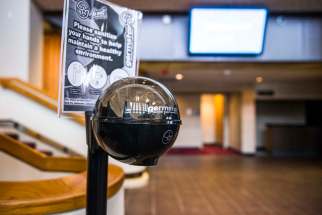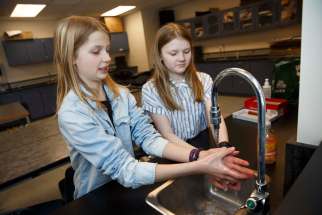Pet seminary Classes help newcomers who grew up terrified of dogs
Read this article for free:
or
Already have an account? Log in here »
To continue reading, please subscribe:
Monthly Digital Subscription
$0 for the first 4 weeks*
- Enjoy unlimited reading on winnipegfreepress.com
- Read the E-Edition, our digital replica newspaper
- Access News Break, our award-winning app
- Play interactive puzzles
*No charge for 4 weeks then price increases to the regular rate of $19.00 plus GST every four weeks. Offer available to new and qualified returning subscribers only. Cancel any time.
Monthly Digital Subscription
$4.75/week*
- Enjoy unlimited reading on winnipegfreepress.com
- Read the E-Edition, our digital replica newspaper
- Access News Break, our award-winning app
- Play interactive puzzles
*Billed as $19 plus GST every four weeks. Cancel any time.
To continue reading, please subscribe:
Add Free Press access to your Brandon Sun subscription for only an additional
$1 for the first 4 weeks*
*Your next subscription payment will increase by $1.00 and you will be charged $16.99 plus GST for four weeks. After four weeks, your payment will increase to $23.99 plus GST every four weeks.
Read unlimited articles for free today:
or
Already have an account? Log in here »
Hey there, time traveller!
This article was published 12/03/2020 (2107 days ago), so information in it may no longer be current.
After some convincing, Feruz stood up and walked slowly towards the small dog sitting patiently at the front of the classroom. She presented her hand for a sniff before placing it gently on the animal’s back — a wide smile extending across her face as she made contact.
It’s something she never would have dared to do in her homeland, where dogs run wild and dangerous.
The 11-year-old from Eritrea touched a dog for the first time in her life on Monday morning during a workshop hosted by the Winnipeg Animal Services Agency at the Newcomers Employment and Education Development Services (NEEDS) centre on Notre Dame Avenue.
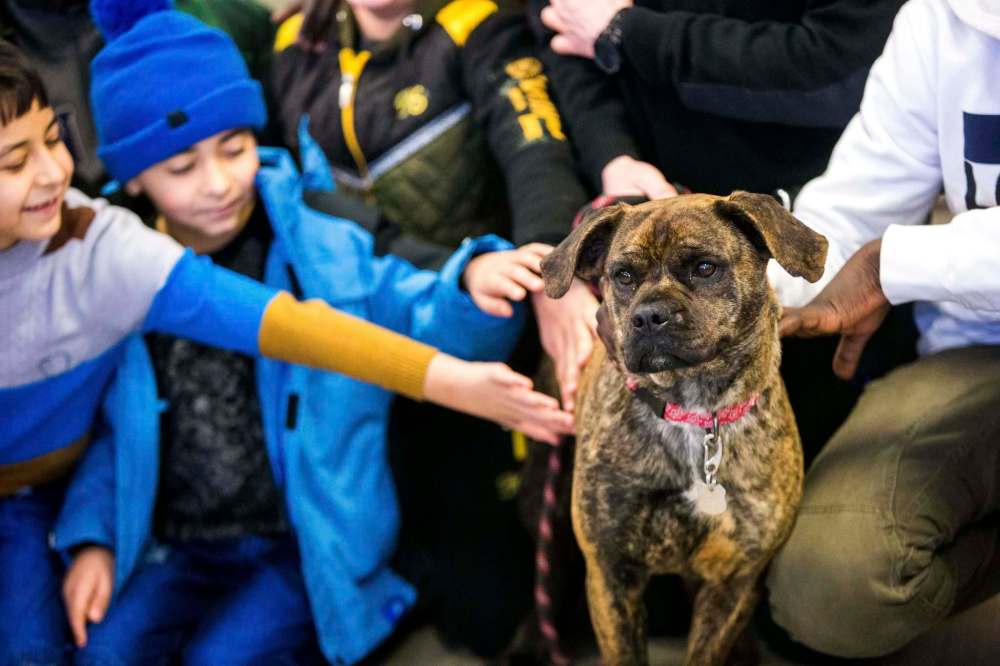
“I was afraid at the beginning and then it was good,” Feruz said, still grinning and speaking in Arabic through a translator.
Feruz has been in Winnipeg for less than a month and is a participant in NEEDS’ Introduction to the Canadian Education Program, which provides transitional education for newly arrived refugees aged six to 17 while they await placement in a Winnipeg school. The Free Press is following the organization’s client confidentiality policy by not disclosing the surnames of program participants.
Dogs were something to be avoided as Feruz grew up in Eritrea.
“Back home, the dogs are loose dogs, so that’s why people don’t get close to them because they bite,” Feruz said.
This reality is what prompted Animal Services to start offering classes on animal behaviour and pet ownership for newcomers several years ago.
“Sometimes people in their home countries have had lousy experiences or no experiences,” said Leland Gordon, chief operating officer of Animal Services. “It improves the health and safety of our communities by having residents who know how to safely interact around dogs.”
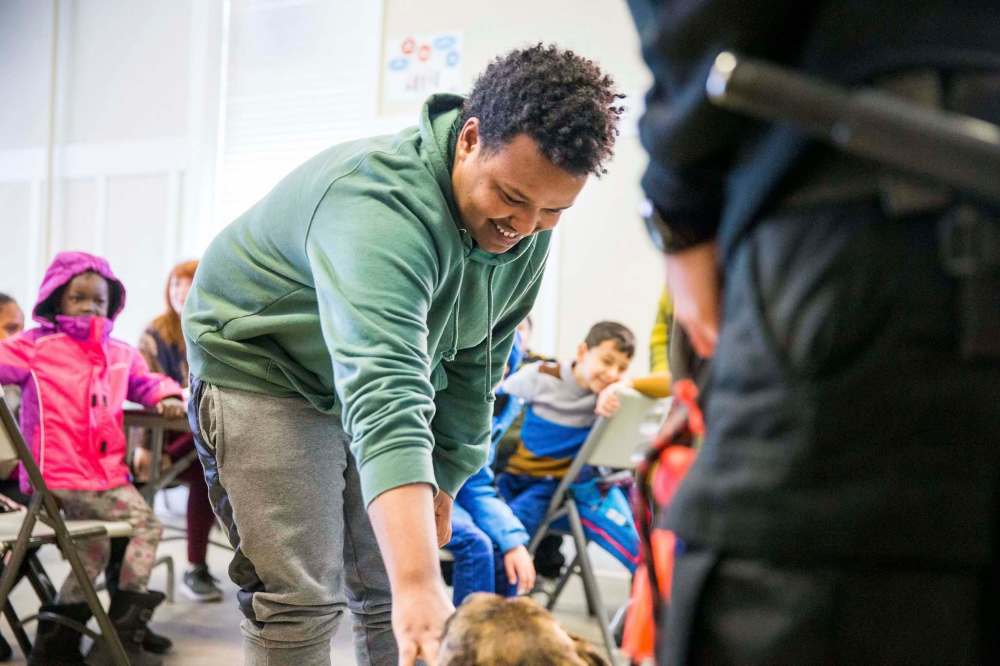
On Monday, about a dozen NEEDS students and a handful of teachers took part in the 45-minute presentation. The excitement was palpable when Gordon and Austin Olek, an animal resources officer, entered the classroom with Gemma, a petite two-year-old brindle-boxer mix with a perma-smile.
Agency staff are selective about which dogs they bring into a classroom — especially when the audience may be meeting a dog for the first time.
“The dog has to be super, duper, duper friendly and be able to have little kids come up to it and show no fear whatsoever,” Gordon said.
Gemma, who has been adopted but was waiting to get spayed before heading to her new home, checked all those boxes.
Gordon started the class by going over the parts of a dog and asking students to identify Gemma’s nose, paws and tail. Next, he explained the role of the Animal Services department before getting to the crux of the lesson: learning how to properly and safely interact with an unfamiliar dog.
When it came to practising the interaction — asking for permission, letting Gemma sniff their hand and then petting her on the side or back — some students were eager to give it a try and others, like Feruz, needed a bit of coaxing.
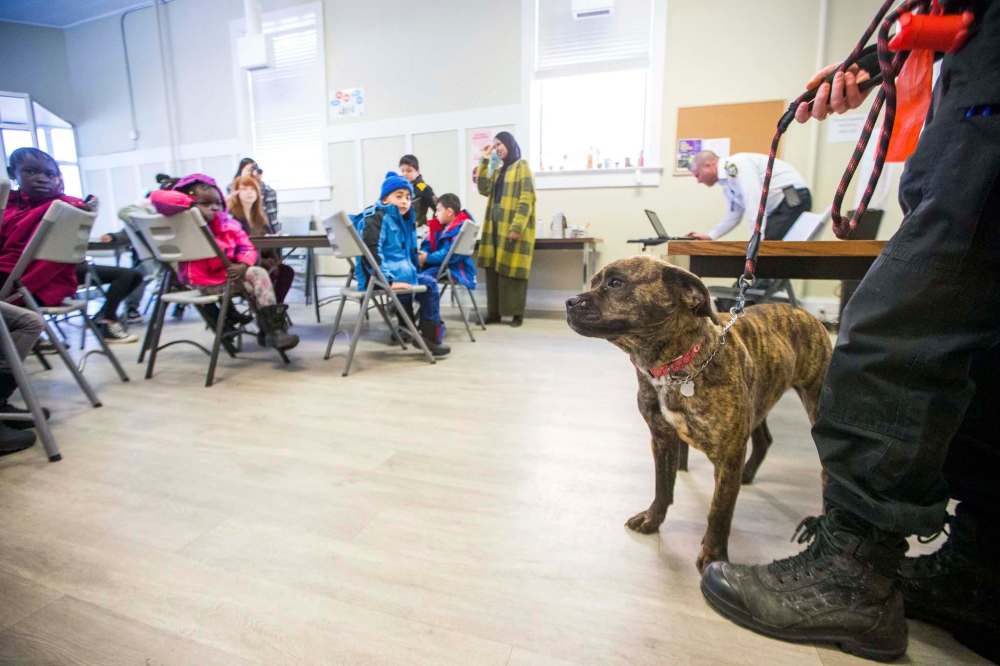
“It took a lot for some of those kids to actually go up and pet the really friendly dog that we brought in, but that was probably very helpful for those kids as they grow older they’ll understand that dogs can be a very positive addition to our community and a household,” Gordon said.
Animal Services has held classes for adults through the Immigrant and Refugee Community Organization of Manitoba in the past and has visited NEEDS twice in the last few months. Fifteen-year-old Nasri was attending the class for the second time on Monday.
“There was a dog coming today, that’s why I came,” he said.
That attitude is an about face for Nasri, who says he was afraid of dogs before coming to Winnipeg from Somalia four months ago.
“In Somalia, people don’t have pets. There are dogs but they are wild dogs,” he said. “If I were to pet them before I would have (been bitten).”
His first class with Animal Services helped him overcome those fears.
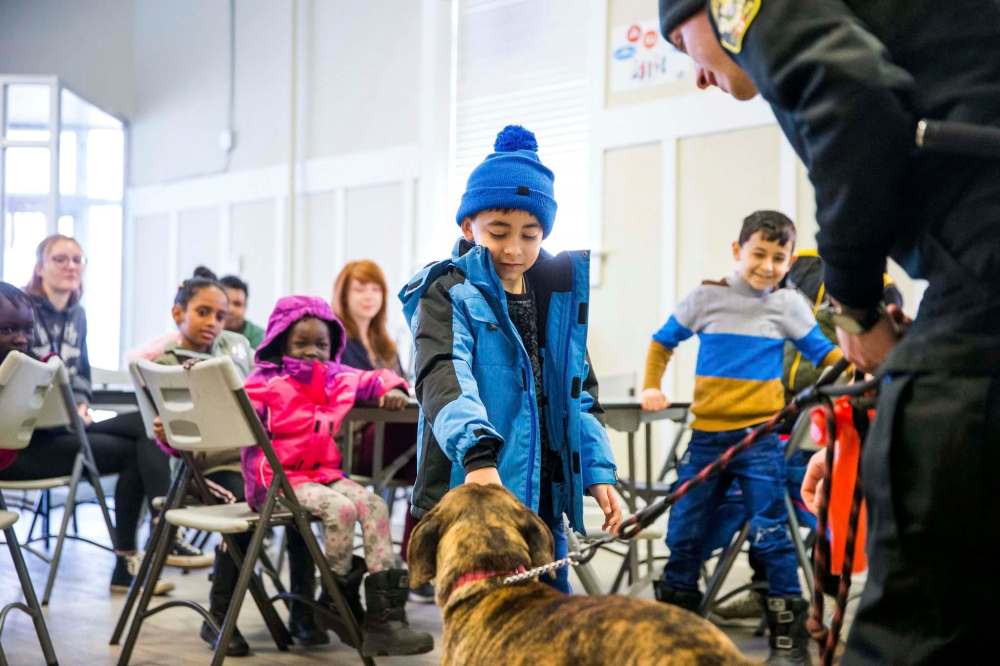
“That was the first time I pet a dog… it was a little scary but I did it,” Nasri said. “I do like dogs now.”
Instead of focusing on subjects such as math and science, the youth education program at NEEDS provides an introduction to Canadian society with units on education, employment, health, nutrition, safety, laws and community. Students attend the school Monday to Friday — some for two weeks, others for up to two months.
Alejandra Cano is the assistant manager of the introduction program and says the collaboration with Animal Services fits the school’s overall mission.
“We just want to better prepare them for what’s next to come,” Cano said. “They will be out in the community and they will see dogs and we want to make sure it’s not a scary thing for them and they also know how to be safe if that does happen.”
The newcomer class is part of Animal Services’ wider education efforts that see staff and dogs visit schools and attend more than 30 community events annually.
Gordon says community outreach, social media and the agency’s Doggie Dates program — which allows residents to take a dog home for a day, or even up to a week — have helped spread the word about the dogs up for adoption at the kennel on Logan Avenue.
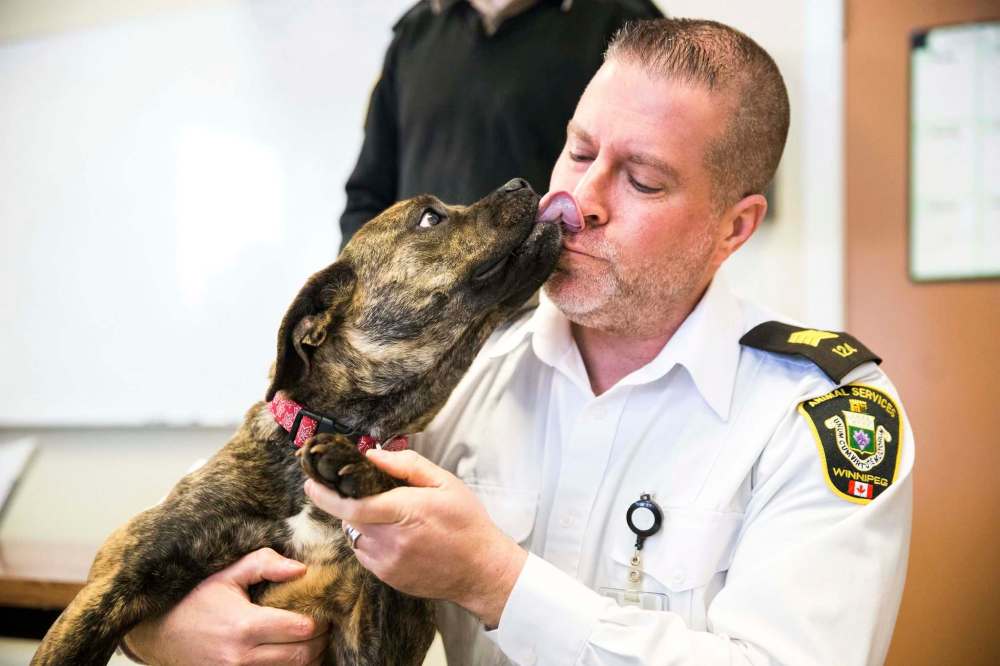
“There’s still people that don’t know that Animal Services has dogs for adoption,” Gordon said. “Our dogs have gone on over 500 doggie dates in just a few years and that is incredibly improving the sociability of those dogs, it’s getting the community to know what we do.”
eva.wasney@freepress.mb.ca
Twitter: @evawasney

Our newsroom depends on a growing audience of readers to power our journalism. If you are not a paid reader, please consider becoming a subscriber.
Our newsroom depends on its audience of readers to power our journalism. Thank you for your support.



